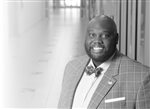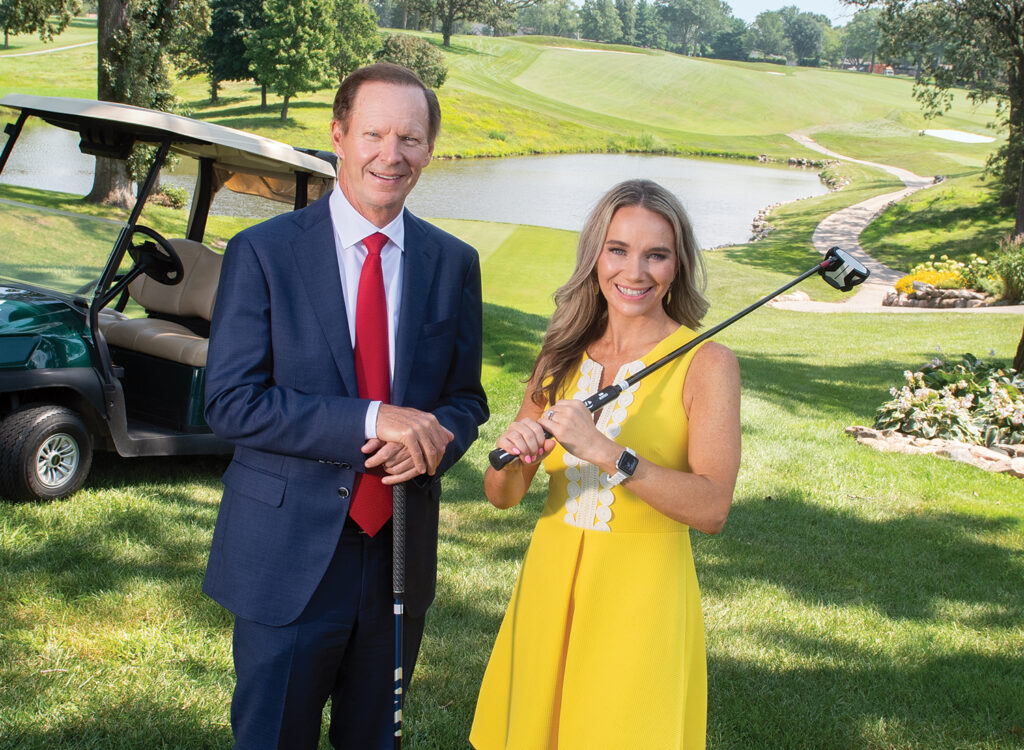A Closer Look: Anthony Ferguson
Executive director of equity, inclusion and diversity, West Des Moines Community Schools

As West Des Moines Community Schools enter the second semester of the 2020-21 school year, Anthony Ferguson is leading efforts toward greater equity.
Ferguson joined the district last fall as the first executive director of equity, inclusion and diversity — a new role established by the West Des Moines school board in June, as part of the district’s six-point Actions for Equity plan. Designed and approved by the board following calls for racial reckoning in the U.S. last summer, the district committed to hiring a full-time equity director, scheduling ongoing anti-racism listening sessions for district families and staff, engaging the board in learning about race, creating a student/family/staff advisory group to guide the district’s efforts, conducting equity audits, and reviewing the culture and tone of its school resource officers.
That commitment helped attract Ferguson in the first place.
“I thought the six-point plan was pretty serious and an ambitious plan to really take that next step when it comes to the work,” Ferguson said. “This is something I can see myself being a part of.”
Ferguson will oversee the district’s continued efforts under the Actions for Equity plan across all 13 West Des Moines Community schools, which serve more than 9,000 students.
Before joining the West Des Moines district, Ferguson served as a victim rights coordinator for the Office of the Iowa Attorney General; a primary counselor for Mercy Medical Center’s House of Mercy; and as a regional executive director for Alpha Phi Alpha Fraternity Inc.
How do you describe this new role to others?
I see myself as the tip of the spear for the district when it comes to equity work, and being able to help manage the district, navigate [diversity, equity and inclusion] work and making sure that it remains at the forefront in every aspect of what we do when it comes to our students, our policy and our board.
I get to [work with] community members, the board and our key leadership, our teachers and all our principals. It’s a large role, but I think if we’re going to do this work correctly and if we’re really going to make real change, then I have to be involved in all of those pieces. … There’s some roles out there that just focus on equality work when it comes to the students, and that’s great, but you also need someone to do the policy work. I feel like I’m that thread to connect it all together, and I can be a voice for the students, be a voice for the administrators and speak to policy as well.
What are the challenges facing West Des Moines students of color today, and what are your priorities moving forward?
The first thing is making sure that they have a safe community for them to thrive, a community that reflects who they are and where they come from, and what they stand for, to truly advocate for their needs. At the same time, giving them a space to do that themselves. One of the larger challenges with our students of color is they want to see folks that look like them in the classroom, on our board and in every aspect of everything that we do.
What goals do you have for this first year?
We have our six-point plan, which we’re heavily focusing on. This first semester on this post has been truly about building my foundational knowledge around the district. I’ve been leading with two major questions, and they’re really simple: What are the challenges/where can we be better; and then our strengths, what are the things we’re getting right?
This year we’ll really be focusing on putting systems in place so we can continue to move forward. We’re a unique district in the sense that we have what we call “equity leads” in each building, [who are] really charged with ensuring that equity is reached in each of our buildings. Another part of the job this semester, we’ll be looking at school resource officers — on a national scale [the position] has been sort of a polarizing topic, so we’ll do a deep dive there. And last but not least, being able to provide training at our board level and our administrative level — those are my goals for this next semester.
With the ongoing pandemic challenges, have you been able to get to know the people and the character of the school district?
It’s been going well. With the pandemic happening all around us, I think that certainly has made things a little more challenging, but it has not stopped that process of getting to know our students. We have a program called CORE [Congress for Racial Equality], and we have certain … student-led programs that really focus on equity and inclusion. Students in West Des Moines have also had the opportunity to play a key role in the White Privilege Symposium that took place a month or so ago, so getting an opportunity to interact with them via those spaces have been good.
What was the White Privilege Symposium?
The White Privilege Symposium was a district-sponsored event. We had key members of our district helping to organize that. … It was a conference that really shed light on what white privilege is, how it manifests itself in our schools and within our state. We had national speakers come in as well as a lot of local speakers to talk about communities of color, and how they function in predominantly white spaces. I think the key part of that was, it was truly centered on education and then action — being able to create actionable steps to help not only our district, but our community and our state move forward. This is the second time that it’s been held here in the state of Iowa — the first time it was hosted by Drake University.
What should white community members in West Des Moines know about the Actions for Equity plan? What can they do to support this work?
I want to reiterate — getting out of their comfort zone, truly engaging and being open and honest about what they’re saying. Be willing to learn and listen, and be OK with sometimes not getting it right. … We have to be open, we have to trust each other — first we have to be vulnerable enough to do that, and then we also need to be OK saying, “I’m sorry, I made a mistake.” I think that really begins to move the needle forward.
What’s the best piece of advice or feedback you’ve received?
Focus on what you know your purpose is, and understand your “why.” That is what has kept me grounded. I come from a family that is very giving and takes care of one another, so I bring that same energy and passion and purpose to my work, to my professional career. How do I help someone else, how do I share whatever knowledge I’ve been able to gain?
What have you been reading/watching/listening to lately?
There’s a sermon by T.D. Jakes that talks about walking in your purpose and walking in your passion — sort of what I was just alluding to. That has certainly been resonating with me in this new year: How do I get myself more aligned with my purpose? And I think for so much of my last decade I’ve been career-focused, education-focused. I want to spend more time with family, I want to spend more time with myself and doing more of those self-care things.











